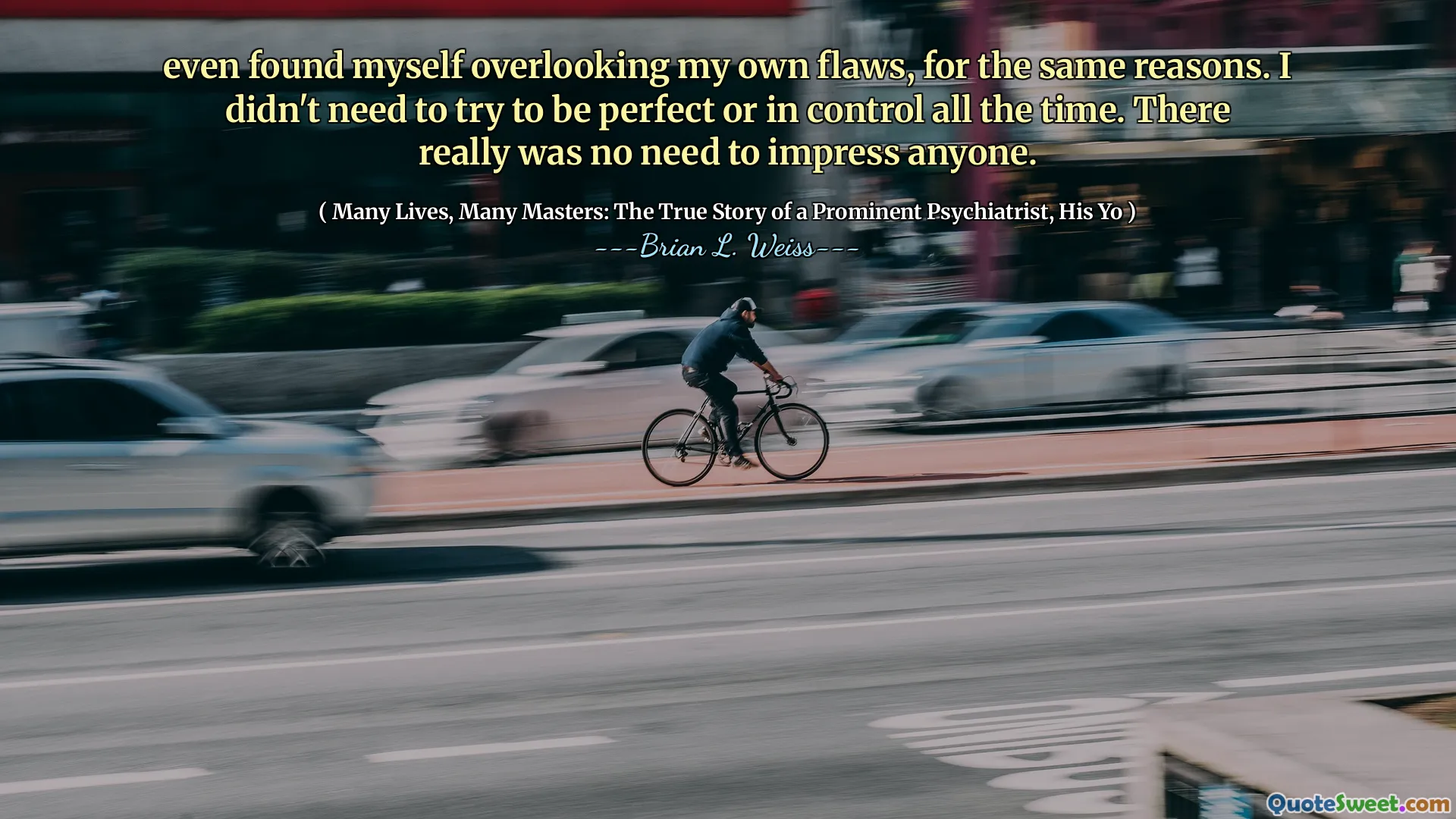
even found myself overlooking my own flaws, for the same reasons. I didn't need to try to be perfect or in control all the time. There really was no need to impress anyone.
This quote highlights a profound journey toward self-acceptance and the realization that the pursuit of perfection and constant control can be both exhausting and unnecessary. Often, individuals spend a significant portion of their lives striving to meet external standards or impress others, which can lead to feelings of inadequacy and cognitive dissonance. Recognizing that flaws are part of being human is a crucial step toward inner peace. When one stops to appreciate their imperfections, it fosters authenticity and transparency, allowing genuine connections to flourish. The acknowledgment that perfection is an illusion relieves individuals from undue pressure, empowering them to live more freely and comfortably in their own skin. This process involves a shift from external validation to internal validation, emphasizing self-love and self-awareness. It encourages embracing vulnerability, which in turn fosters resilience and emotional stability. By letting go of the need to control everything, one can find a sense of tranquility and confidence rooted in authenticity rather than societal approval. Such a mindset promotes mental and emotional well-being, decreasing stress and fostering a more compassionate relationship with oneself. Ultimately, the message of this quote is liberating: you do not need to constantly seek approval or attempt to present a perfect facade to be worthy. Accepting oneself fully, flaws and all, is an empowering step toward genuine happiness and self-contentment.






